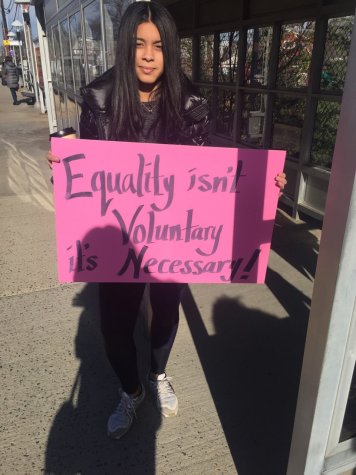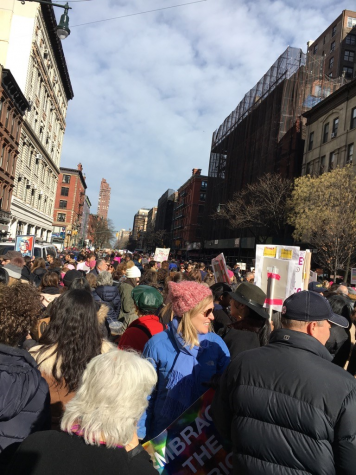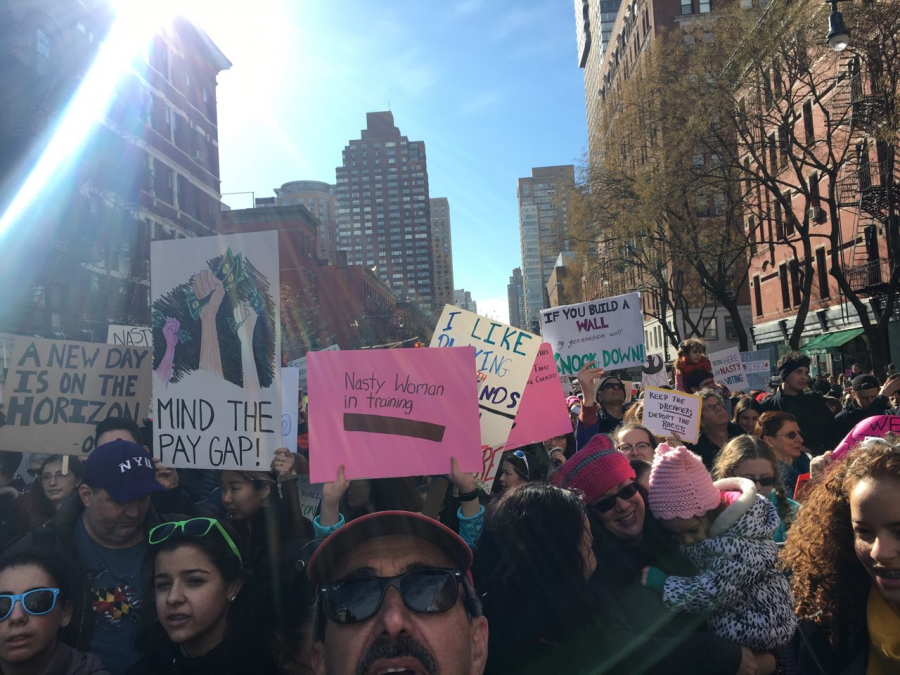Abortion is a Human Right
In a world where progress and rights are highly valued, it comes as a shock to many that in some states, women’s rights are taking steps backwards. The state governments of Alabama and Georgia signed into law the most restrictive abortion ban the nation has seen since the passing of Roe v. Wade in 1973. The ban prohibits abortions after six weeks—a time when many women do not even know they are pregnant—and includes no exceptions for cases of rape or incest. Not only does the ban unlawfully restrict women’s rights to terminate a pregnancy, it restricts women’s rights in general.
In addition to criminalizing the procedure and making life in prison a possible sentence for women who illegally receive an abortion, the bill also creates the potential for women who have miscarriages to be punished. If a woman’s behavior is proven to be a factor in her miscarriage—for example the use of drugs or alcohol—she could be tried for second degree murder and be imprisoned for 10-30 years. And, according to a May. 5 2019 Newsweek article entitled, “Under Alabama’s Abortion Ban, Doctors Who Perform Abortions on Rape Victims Could Get More Time in Prison Than Rapists,” “in cases involving rape, a doctor [who performs an abortion] could be punished behind bars for decades longer than a rapist who caused an unwanted pregnancy in the first place,” a fact that is both shocking and disturbing to most pro choice supporters. “It is unfair that doctors who are only abiding to what their clients ask for can get in more trouble than the rapist who actively chose to ruin someone’s life,” commented sophomore Jillian Swanson.

Many argue the ban is not about abortion, but rather it is about control. Between 2005 and 2016, abortion rates in Alabama dropped by 41% according to AL.com, so why now is there a sudden urge for the ban? As junior Djellza Pulatani explains, “This ban is ultimately attempting to overturn Roe v. Wade, where it was decided that abortions are, in fact, constitutional. This ban is almost a war on women. To conceive a child, it takes two people. Women are the ones to bear the child, however. These states that are trying to ban abortion are telling women to use contraceptives, while simultaneously trying to make accessing them harder. It feels as if only women are being asked to change major aspects of their lives, and men are simply telling us what to do.”
As stated in the constitution, “Congress shall make no law respecting an establishment of religion,” meaning church and state must be kept separate. Although one may say that life begins at conception, that idea is religiously based, meaning the acceptance of that idea when altering laws regarding abortion is unconstitutional in itself. Consequently, the idea that life begins at conception is not valid in the argument of prolife versus prochoice and, in this instance, is irrelevant. The U.S. Supreme Court has also upheld the right to privacy, which protects the rights to bodily integrity. The elimination of abortion is a direct violation of this privacy.
To fully understand the irrationality of the ban, one must first understand female anatomy. For the average woman, six weeks pregnant means she is two weeks late on her menstrual cycle, far too early for most to determine they are even pregnant. Although an embryonic heartbeat can be detected at this time, the “baby” is roughly the size of a pea, according to HealthFully’s website (healthfully.com), and scientifically speaking, it is not much more than a collection of cells. Brain activity has not yet begun, and new research suggests that the fetus cannot feel pain until roughly 27 weeks, according to a LiveScience article titled “Do Fetuses Feel Pain? What the Science Says.” (livescience.com). At only six weeks pregnant, some at home pregnancy tests may even come back negative. Thus, this ban does not just restrict “late” abortions, it eliminates them almost entirely.
Outlawing abortion will not put an end to abortion, but it will put an end to safe abortions. In 1966 when the leader of Romania outlawed termination in an effort to boost the country’s population, not only were the results long term ineffective, but they were also dangerous. Wealthy women bribed doctors to secretly, and oftentimes unsafely, perform the procedure. But Romania is not the only country where unsafe abortions took a toll; according to the Planned Parenthood website (plannedparenthoodaction.org), in 1965, illegal abortions made up one-sixth of pregnancy-related deaths—the exact reason why Roe vs. Wade was brought to the Supreme Court in the first place. According to the U.S. National Library of Medicine National Institutes of Health, worldwide 68,000 women die annually due to unsafe abortions, and of those who survive, five million suffer long-term health complications. Women are intentionally harming themselves and their fetuses to avoid bringing an unwanted life onto this Earth. Before abortions were made legal, women took it into their own hands to perform the process, and if it is made illegal again, women will once again desperately resort to risking their own lives to terminate the pregnancy without proper medical assistance. Outlawing abortion is prioritizing the lives of unborn fetuses over the lives of American women.

Although in Alabama the bill was signed in by a female governor, it was voted on by 25 white males, raising the question: should men who never have the potential to experience pregnancy themselves be voting on the reproductive issues of millions of women? As junior Caitlin Buchala says, “No uterus means no opinion.” No person—male or female— or government should have the power to decide the personal health for over a million current and future women. Pro-choice does not mean pro-abortion; it means favoring the idea of giving women a choice of when and if they will exercise their reproductive rights.
Finally, it is impossible to lift the idea of gender equality with women’s reproductive rights under attack. Without reproductive rights, women are, in that aspect, not equal to their male counterparts, whose reproductive rights would realistically never be infringed upon. As Pulatani stated, “Being an advocate of women, I believe that abortions are our human rights.” Control over one’s body is a human right; abortion is merely an extension of that belief. Women should be able to make their own decisions about their health and body, a decision that is best for themselves and their unborn fetus.

I am a member of the Class of 2020. In my free time, I write articles for Horizon. I am the editor-in-chief for the print edition for 2019-2020.


















